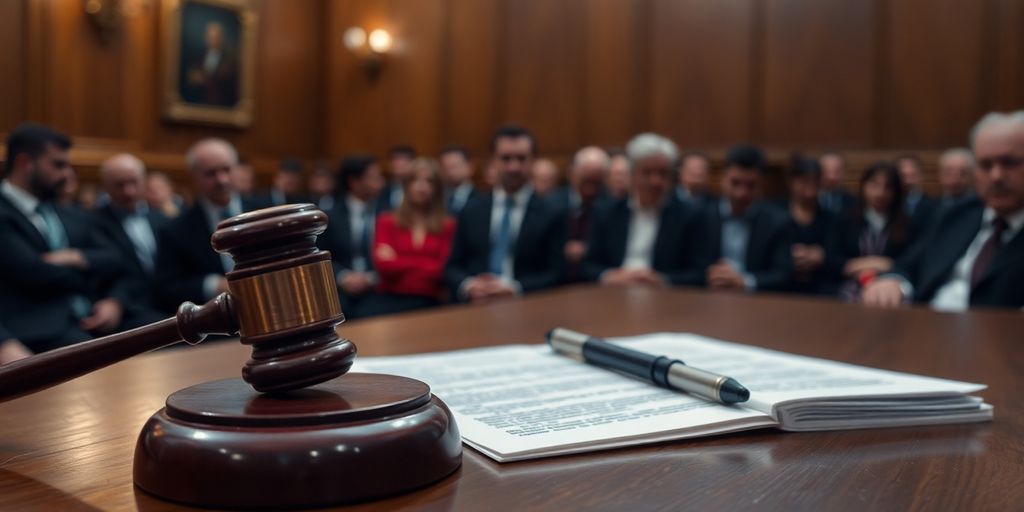The war crimes trial of former Kosovo President Hashim Thaçi has reached a significant milestone as the prosecution concluded its case after more than two years of hearings. The trial, which involves serious allegations against Thaçi and three other former leaders of the Kosovo Liberation Army (KLA), marks a pivotal moment in the pursuit of justice for crimes committed during the Kosovo War.
Key Takeaways
- The prosecution presented evidence from 125 witnesses over two years.
- Thaçi and three co-defendants face charges of war crimes and crimes against humanity.
- The trial is part of an international effort to address wartime atrocities in Kosovo.
- The defense will now begin presenting its case following the prosecution’s conclusion.
Background of the Trial
The trial is being held at the Kosovo Specialist Chambers in The Hague, a court established to address war crimes committed during the 1998-1999 Kosovo War. The prosecution has accused Thaçi, along with Kadri Veseli, Rexhep Selimi, and Jakup Krasniqi, of orchestrating a campaign of violence against perceived enemies, including civilians and political opponents.
The indictment alleges that the defendants were involved in a joint criminal enterprise that led to the murder, torture, and illegal detention of hundreds of individuals. The crimes are said to have occurred in various locations across Kosovo and northern Albania during the conflict.
Prosecution’s Case
The prosecution’s case has been extensive, with over 3,000 exhibits presented and a total of 1,430 submissions filed. Key points from the prosecution include:
- Witness Testimonies: 125 witnesses have testified, providing crucial evidence regarding the alleged crimes.
- Nature of Crimes: The charges include the murder of over 100 victims and the torture of many others, highlighting the brutal nature of the conflict.
- International Oversight: The court operates under international law, with personnel from various countries involved in the proceedings.
Defense Arguments
As the prosecution rests its case, the defense is preparing to counter the allegations. Defense lawyers argue that:
- Lack of Evidence: They claim the prosecution has not sufficiently proven the existence of a joint criminal enterprise or a clear chain of command.
- KLA’s Role: The defense emphasizes that the KLA was a liberation movement fighting against oppression, and the actions taken were in the context of war.
Political Implications
The trial has significant political ramifications in Kosovo, where Thaçi remains a popular figure among many citizens who view him as a hero of the independence struggle. However, the trial has also faced criticism, particularly from some U.S. officials who have labeled Thaçi’s detention as a "grave injustice."
The ongoing proceedings have sparked debates about the legacy of the KLA and the need for accountability in post-war Kosovo. As the defense begins its case, the trial’s outcome could have lasting effects on Kosovo’s political landscape and its relations with international partners.
Conclusion
The conclusion of the prosecution’s case marks a critical juncture in the trial of Hashim Thaçi and his co-defendants. As the defense prepares to present its arguments, the court’s proceedings will continue to draw attention both in Kosovo and internationally, as the quest for justice for wartime atrocities remains a pressing issue.
Sources
- Kosovo’s Hague-Based Prosecution Concludes Evidence Presentation in Trial against ex-KLA Leaders, Prishtina Insight.
- War Crimes Trial Of Former Kosovo President Hits Milestone As Prosecution Rests Case, Radio Free Europe/Radio Liberty.
- Prosecution Set To Wrap Up Case In War Crimes Trial Of Former Kosovar President, Radio Free Europe/Radio Liberty.






